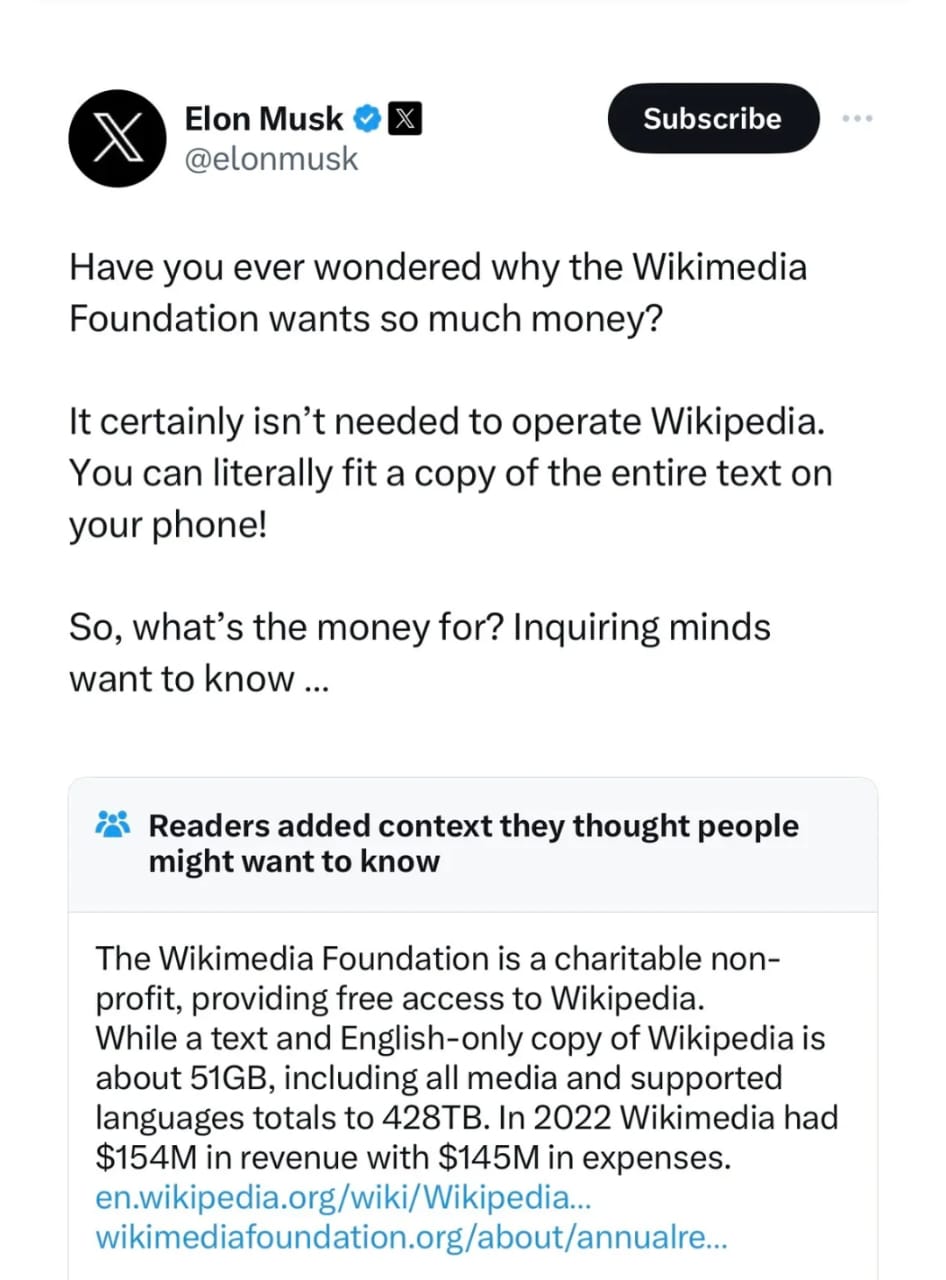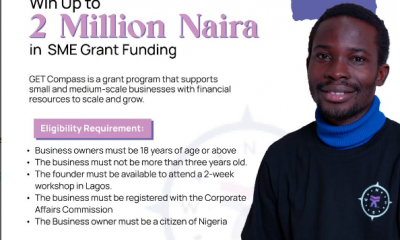news
Study Reveals Over 90% of X’s Community Notes Never Go Live

Study Finds Over 90% of X’s Community Notes Never Published
More than 90% of X’s Community Notes — the platform’s user-driven fact-checking tool — never make it to public view, according to a new report released Wednesday. The findings raise concerns about the effectiveness of the system that Elon Musk has promoted as a core part of the platform’s content moderation strategy.
The study, conducted by the Digital Democracy Institute of the Americas (DDIA), analyzed the full public dataset of 1.76 million Community Notes submitted between January 2021 and March 2025. It was published shortly after the resignation of X’s CEO, Linda Yaccarino, who led the company for two years during a period of significant upheaval.
Community Notes, formerly known as Birdwatch, allows volunteer contributors to submit contextual information or corrections to posts. These notes are then rated by other users as either “helpful” or “not helpful.” A note must receive a sufficient number of “helpful” ratings from users with diverse perspectives to be published directly under a post.
But the DDIA’s analysis revealed a startling bottleneck: over 90% of submitted notes never go live.
“For a program promoted as fast, scalable, and transparent, these figures should raise serious concerns,” the report stated.
Declining Publication Rates
Among English-language notes, the publication rate dropped from 9.5% in 2023 to just 4.9% in early 2025. While Spanish-language notes showed some improvement — increasing from 3.6% to 7.1% — the majority still failed to reach public view.
The study attributes this to a combination of factors, including a lack of consensus among raters and many notes simply going unrated — effectively leaving them in a permanent state of limbo.
“As more notes are submitted, the system’s internal visibility issues become increasingly apparent — especially for English-language content,” the study noted.
A Bot Among Top Contributors
Surprisingly, the most prolific contributor to the program was not a human but a bot-like account focused on flagging cryptocurrency scams. Between 2021 and March 2025, this account submitted over 43,000 notes, yet only 3.1% were ever published.
Speed Still a Problem
While the average time it takes for a note to be published has improved — falling from over 100 days in 2022 to just 14 days in 2025 — the report argues that even this is too slow in the age of viral misinformation.
“False or harmful content can go viral within hours. A two-week delay makes the fact-check irrelevant for real-time events,” the DDIA warned.
Broader Implications
With major platforms like Meta and TikTok experimenting with community-driven moderation, the DDIA findings could influence industry thinking. Some see Community Notes as a less biased alternative to professional fact-checkers, whom critics have accused of political partiality.
However, researchers caution that Community Notes may only be effective in areas where there is broad public consensus. They also warn that contributors can be influenced by political or ideological leanings, often targeting perceived opponents.
X launched the Community Notes feature during Linda Yaccarino’s tenure as CEO. She announced her resignation on Wednesday, offering no specific reason for her departure. The move came amid backlash over antisemitic content generated by Grok — X’s AI chatbot — which posted remarks praising Adolf Hitler and disparaging Islam.
news
Call for Applications: SDG Innovation Accelerator for Professionals 2026 Cohort

Applications Open for the United Nations 2026 SDG Innovation Accelerator for Professionals
The United Nations Global Compact has announced the opening of applications for the 2026 SDG Innovation Accelerator for Professionals — a nine-month programme designed to empower young professionals to create business-driven solutions that advance the Sustainable Development Goals (SDGs).
This initiative provides a unique opportunity for companies participating in the UN Global Compact to nurture in-house innovators capable of driving sustainability, transformation, and long-term business value.
About the Accelerator
The SDG Innovation Accelerator equips participants with tools and strategies to integrate sustainability into business models, develop innovative solutions, and build leadership capacity.
For African organisations, particularly those expanding their ESG and innovation strategies, the programme offers access to global expertise, collaborative learning, and practical frameworks to transform sustainability goals into measurable business results.
Programme Highlights
-
Duration: February – September 2026
-
Application Window: 15 October 2025 – 31 January 2026
-
Eligibility: Young professionals aged 35 or below employed by companies that are members of the UN Global Compact
-
Commitment: Minimum of 4 hours per month for coursework and attendance at 4 full-day workshops
-
Tracks:
-
In-country cohorts
-
Africa Track (for companies in Egypt and the Indian Ocean region)
-
Global Track (for participants in countries without local Global Compact offices)
-
Participants are expected to be high-performing individuals with a strong interest in sustainability, business innovation, or emerging technologies.
Why It Matters for African Businesses
Across Africa, companies are under increasing pressure to deliver not just profits, but purpose. However, many organisations still lack the internal capacity to innovate around sustainability.
The SDG Innovation Accelerator bridges this gap by equipping young professionals to address real business challenges such as:
-
Climate risk and resilience
-
Circular economy and sustainable production
-
Inclusive business growth
-
Ethical and responsible sourcing
Through participation, companies can strengthen their brand reputation, prepare future leaders, and integrate the SDGs into corporate strategy. Alumni often return with actionable innovations that enhance product design, operational efficiency, and corporate responsibility.
Benefits for Participants
-
Access to global case studies and innovation frameworks
-
Expert-led workshops and hands-on coaching
-
Collaboration with peers from leading international companies
-
Mentorship on sustainability, technology, and leadership
-
Opportunity to develop and pitch real-world business solutions
Benefits for Companies
-
Tailored SDG-focused solutions to key business challenges
-
Strengthened innovation and sustainability culture
-
Structured professional development for emerging leaders
-
Enhanced global recognition through UN Global Compact participation
Tips for a Successful Application
-
Nominate employees already contributing to innovation or sustainability projects
-
Choose candidates capable of representing company priorities and challenges
-
Ensure management support for nominated participants
-
Encourage nominees to identify a sustainability challenge relevant to their company before applying
How to Apply
Only UN Global Compact participant companies are eligible to apply.
To submit an application:
-
Visit the official SDG Innovation Accelerator Programme page
-
Indicate interest during the application window (15 October 2025 – 31 January 2026)
-
Submit nominee details, including professional background and company endorsement
-
Attend the information session on 2 December 2025
-
Await confirmation and onboarding before the programme launch in February 2026
Source: United Nations Global Compact – SDG Innovation Accelerator for Professionals
news
Moniepoint CEO Unveils ₦150 Million Future Builders Fund to Support 14 STEM Students in Nigeria

Moniepoint CEO Launches ₦150 Million Future Builders Fund to Empower STEM Students Across Nigeria
Tosin Eniolorunda, Founder and Chief Executive Officer of Moniepoint, has announced the launch of the Future Builders Fund, a fully-funded scholarship program designed to empower high-potential but under-resourced students across Nigeria pursuing degrees in Science, Technology, Engineering, and Mathematics (STEM).
According to the official statement, this pilot initiative seeks to eliminate the financial and structural barriers that hinder brilliant students from realizing their potential, while also contributing to Nigeria’s growing digital economy and innovation ecosystem.
A Vision for Inclusive Innovation
The Future Builders Fund is an extension of Eniolorunda’s long-standing commitment to education and technology empowerment. His past initiatives include the donation of a ₦100 million CAD/CAM laboratory to Obafemi Awolowo University (OAU) and sponsorship of youth-focused innovation programs such as the University of Lagos Entrepreneurship Challenge, Nigenius Inter-School Robotics Competition, and the NextGen Connect Interschool Oratory Competition — all valued collectively at ₦50 million.
“Every child deserves the opportunity to become the best version of themselves, and socioeconomic barriers should never block the path to brilliance,” Eniolorunda said. “Through the Future Builders Fund, we aim to identify and nurture the innovators who will define Nigeria’s future. This initiative goes beyond financial support — it’s about mentorship, growth, and transformation.”
Programme Structure and Coverage
The Future Builders Fund will initially support 14 outstanding students, with two beneficiaries selected from each of the following seven federal universities across Nigeria’s six geopolitical zones:
-
Obafemi Awolowo University (Ile-Ife)
-
University of Nigeria (Nsukka)
-
University of Calabar
-
University of Abuja
-
Ahmadu Bello University (Zaria)
-
University of Maiduguri
-
University of Lagos
Each selected scholar will receive:
-
Full tuition support
-
On-campus accommodation
-
A brand-new laptop
-
Monthly living stipend
-
Access to mentorship and leadership development programmes focused on building technical expertise and entrepreneurial thinking
Eligibility and Selection Process
Eligible candidates must be 200-level students enrolled in any of the listed universities. Applicants are required to submit:
-
Their bio-data
-
Academic transcripts
-
A personal statement detailing their financial need and career aspirations
Shortlisted applicants will take a standardized aptitude test assessing academic strength, critical thinking, and problem-solving abilities.
The top two candidates from each institution will be awarded the scholarship, renewable annually based on academic performance and demonstrated growth in leadership or technical competence.
Building Nigeria’s Next Generation of Innovators
The Future Builders Fund is part of a five-year pilot initiative that blends financial aid, mentorship, and STEM skill-building to accelerate the rise of Nigeria’s next generation of innovators, inventors, and entrepreneurs.
Through this initiative, Moniepoint is not just investing in education—it is building a future-ready pipeline of young Nigerians equipped to drive the nation’s digital and technological transformation.
news
Apply Now: Fully Funded Sino-Africa Green Finance Alliance (SAGFA) Fellowship 2025

Sino-Africa Green Finance Alliance (SAGFA) Fellowship – Fully Funded
The Sino-Africa Green Finance Alliance (SAGFA) Fellowship is a fully funded professional development program aimed at cultivating African leadership in green finance and sustainable development.
Led by the Africa-China Centre for Policy and Advisory (ACCPA) and supported by the African Climate Foundation (ACF), this fellowship equips professionals in policy, research, and industry with the knowledge and tools to drive sustainable economic transformation across the continent.
About the Fellowship
The SAGFA Fellowship provides specialized training in green finance, climate policy, and sustainable industrial development.
The pilot edition is delivered fully online, ensuring accessibility and flexibility for professionals across Africa. Future cohorts may include in-person residencies and industry immersion as the program expands and attracts additional funding.
Why This Fellowship Matters
As Africa navigates the twin challenges of climate change and industrial transformation, expertise in green finance is increasingly vital. This fellowship bridges the gap by empowering professionals to design, implement, and scale financial mechanisms that promote climate resilience and low-carbon growth.
It nurtures a new generation of leaders who go beyond advocacy to deliver real, finance-driven solutions for sustainable progress.
Eligibility Criteria
The fellowship targets mid- to senior-level professionals, including:
-
Policymakers and government officials
-
Researchers and think-tank analysts
-
Development practitioners and program advisors
-
Finance, energy, manufacturing, and agribusiness leaders
-
Sustainability and investment officers
Applicants should demonstrate a strong commitment to applying green finance principles within their organizations or national contexts.
Program Benefits
-
Fully funded 8-week virtual fellowship
-
Expert-led training and case-based learning
-
Africa-China knowledge exchange and collaboration
-
Capstone project addressing national or sectoral challenges
-
Access to a vibrant alumni network shaping Africa’s climate policy
How to Apply
Professionals passionate about advancing Africa’s green economic transformation are encouraged to apply through the official application portal below:
Source: Africa-China Centre for Policy and Advisory (ACCPA)
-

 jobs9 months ago
jobs9 months agoEnvironmental Health & Safety (EHS) Specialist – Oando Plc
-

 business7 months ago
business7 months agoSEC Director-General to Headline Comercio Partners’ Forum on Global Trade and Innovation Trends
-

 news7 months ago
news7 months agoPitch to Win ₦1M! Apply Now for SME Competition 4.0
-

 news7 months ago
news7 months agoApply Now: Pivot Challenge 2025 – Up to ₦50 Million Grant & Business Support for Young Nigerian Entrepreneurs
-

 news7 months ago
news7 months agoApply Now: 2025 NNPC/SNEPCo Scholarship Worth ₦250,000
-

 news7 months ago
news7 months agoApply Now: Grooming Centre ₦20M Grants for Nigerian Undergraduates & Postgraduates
-

 business8 months ago
business8 months agoFG Approves Policy Allowing Ministries to Approve PPP Projects Under ₦20 Billion
-

 news7 months ago
news7 months agoApply Now: GET Compass Grant Program – Up to ₦150 Million for Nigerian MSMEs
